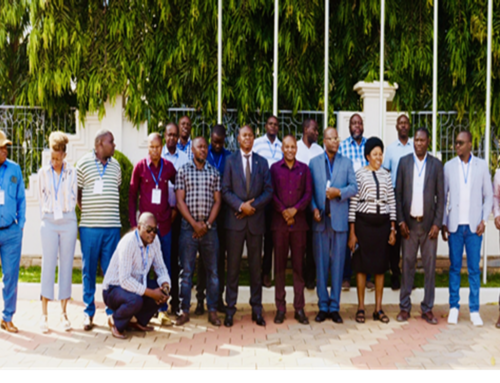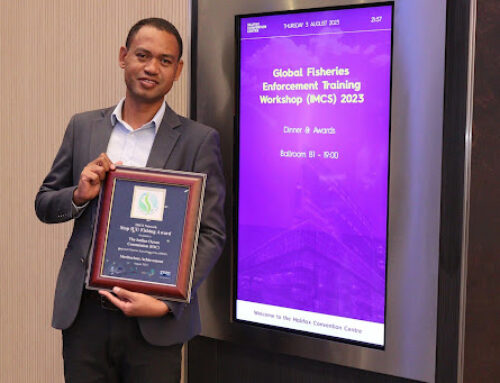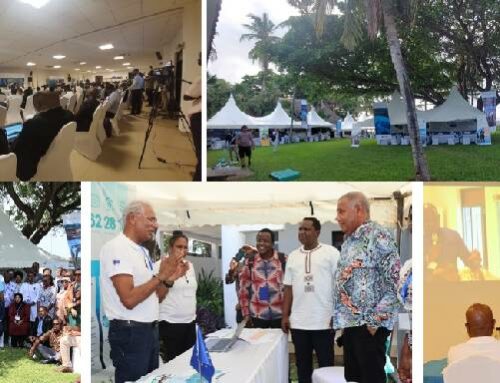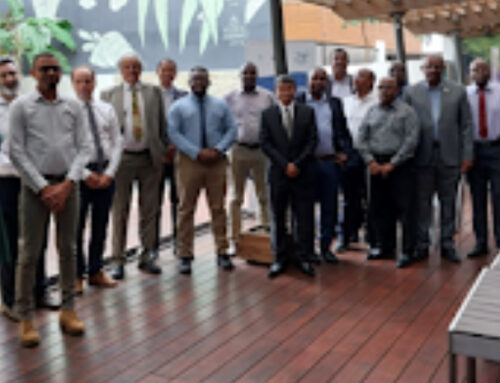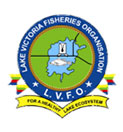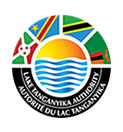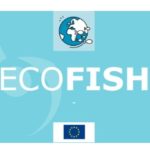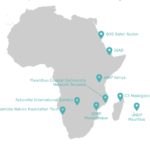Nairobi, 16 June 2022
While global food security is becoming a prominent issue, seven countries of the Southwest Indian Ocean region came together, on 14 and 15 June 2022 in Nairobi, to better face the impact of climate change on the small-scale fishing sector. “This initiative is particularly timely because, if the global temperature were to increase by 2°C, the fish stock of the Southwest Indian Ocean would decrease by 15 to 50% compared to that of 2005. This would worsen an already grim food situation, since fish represents about 17% of animal protein in the world. It is therefore essential for the region to find solutions to preserve this important food and economic resource”, said Vincent Degert, Ambassador of the European Union (EU) to the Republic of Mauritius and the Republic of Seychelles.
This two-day consultation brought together decision-makers from the Ministry of Fisheries, researchers from climate change research institutions, as well as the National Focal Points of ECOFISH Programme from Comoros, Kenya, Madagascar, Mauritius, Mozambique, Seychelles and Tanzania/Zanzibar. Their exchanges led to the setting up of a regional network to assess and mitigate the impact of climate change on small-scale fisheries in the region.
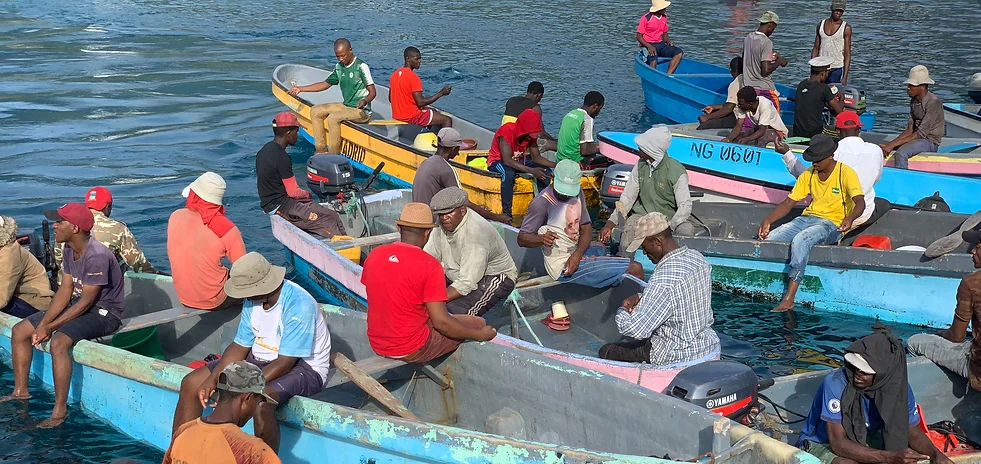
“The overriding objective of this cooperation is to provide the region and its member countries with the necessary data to measure the extent of climate change impact on the region’s fisheries resources. With this information, we will be able to work together towards identifying appropriate solutions and creating synergies, because climate change is a global issue,” said Vêlayoudom Marimoutou, Secretary General of the Indian Ocean Commission.
This workshop adopted the report proposing 17 series of indicators to assess the effects of climate change on fisheries resources in the region. These indicators include environmental and socio-economic data, as well as data on governance, climate finance, etc. and provide a comprehensive view of the challenges to be met.
This regional collaboration aimed at coping with climate change is particularly relevant because about 80% of the negative effects of global warming are felt in Africa, while the African continent produces only 4% of the emissions causing the problem. Moreover, the sixth Assessment Report of the Intergovernmental Panel on Climate Change (IPCC) showcases that, of all ecosystems, the oceans are the most affected. As a result, fishers who are unable to move around, diversify their activities and leverage technology to sustain their catches will be faced with the existential challenge of food insecurity.
The setting-up of this regional network to assess and mitigate the impact of climate change on small-scale fishing is part of the efforts of ECOFISH Programme, which is promoted and funded by the European Union to make fishing a lever for the development of East Africa, Southern Africa and the Indian Ocean region. This Programme is implemented by the Indian Ocean Commission (IOC), Lake Tanganyika Agency (LTA), Lake Victoria Fisheries Organization (LVFO), Common Market for Eastern and Southern Africa (COMESA), East African Community (EAC), Intergovernmental Authority on Development (IGAD), Indian Ocean Tuna Commission (IOTC), Southern African Development Community (SADC) and South West Indian Ocean Fisheries Commission (SWIOFC).
